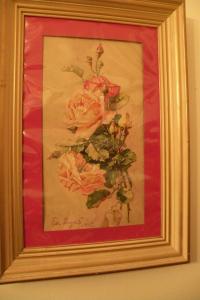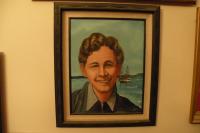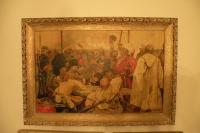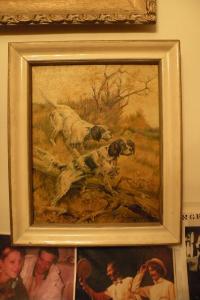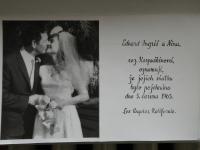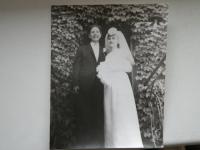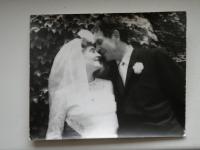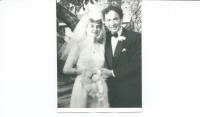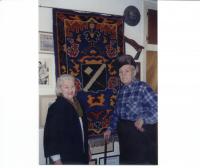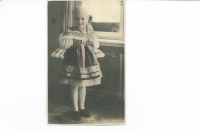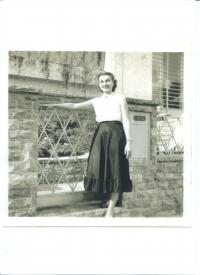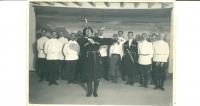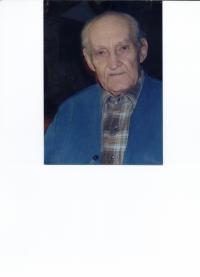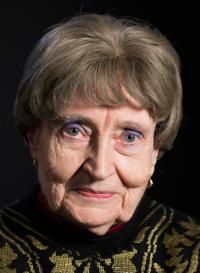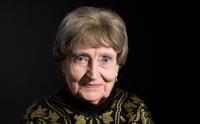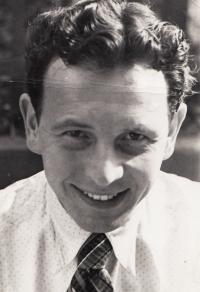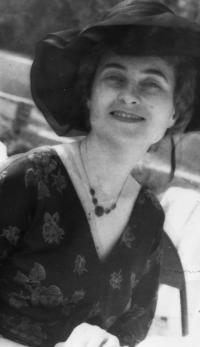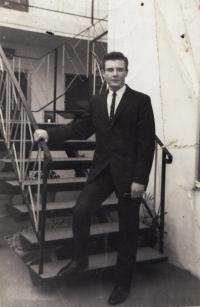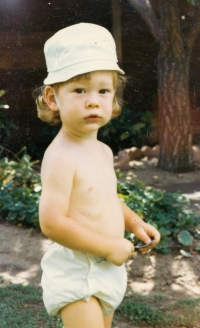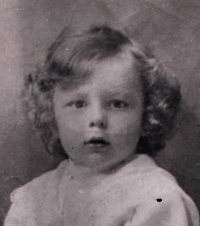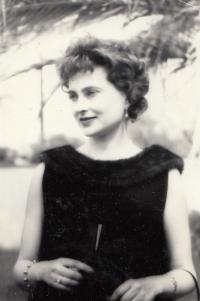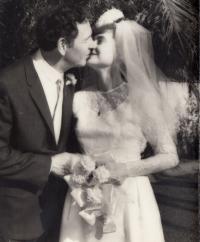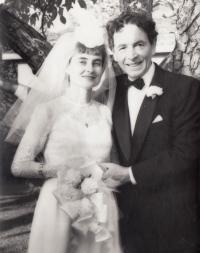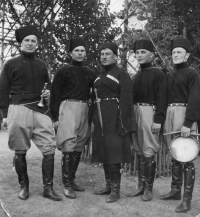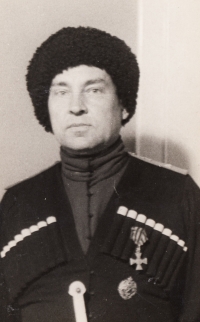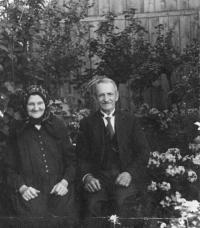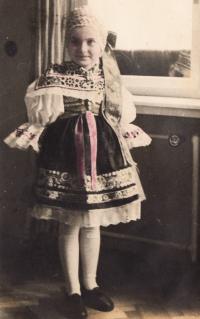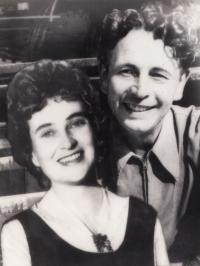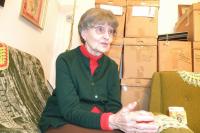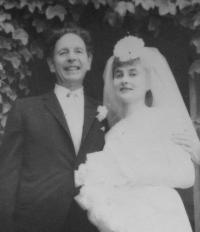O muži, jako byl Eduard Ingriš, jsem snila od dětství

Download image
Nina Ingrišová se narodila 14. června 1931 v Brně. Její otec Viktor Vasiljevič Karpuškin patřil k ruské kozácké emigraci. Matka Marie Brychtová pocházela z Veverské Bítýšky. V dubnu 1945 Karpuškinovi se skupinou kozáckých rodin opustili republiku a směřovali na Západ, z dosahu blížící se Rudé armády. Cesta do západní okupační zóny skončila v uprchlickém táboře v Memmingenu na podzim 1945. Teprve v roce 1949 rodina získala povolení k vycestování do Jižní Ameriky. Pamětnice za války v Brně studovala měšťanku a v Německu střední vzdělání dokončila. Později se v Brazílii věnovala opernímu zpěvu a působila na operní scéně Ipanema. Pracovala jako tlumočnice a průvodkyně na letišti v São Paolu. V roce 1957 rodina přesídlila do Los Angeles v USA. Získala místo v zahraničním oddělení Bank of America. Rodina Karpuškinových udržovala kontakty s československou krajanskou komunitou v USA. Byla zapojena do kulturních aktivit Čechoslováků v Los Angeles, kteří spolupracovali mj. s Eduardem Ingrišem. Jako zpěvačka se podílela na inscenacích Ingrišových operet Tam na horách (1963), Maryša (1964) či Okolo rybníka (1965). Navázala s ním bližší vztah a v červnu 1965 se vzali. V roce 1966 se jim narodil syn Eduard. Od roku 1968 společně cestovali po Severní Americe a živili se promítáním Ingrišových cestopisných filmů, které natočil v 50. letech. Když po deseti letech náročných cest s promítáním skončili, založili si obchod se zdravou výživou. Na sklonku 80. let Eduard Ingriš starší vážně onemocněl. V té době pamětnice obchod prodala, aby mohla financovat nákup počítače na psaní Ingrišových pamětí. Ingriš ale v roce 1991 zemřel a paměti nedokončil. Nina Ingrišová ještě dalších jedenáct let pracovala v obchodě a v roce 2002 odjela natrvalo do České republiky. Žije v Brně a snaží se udržovat odkaz svého muže.
